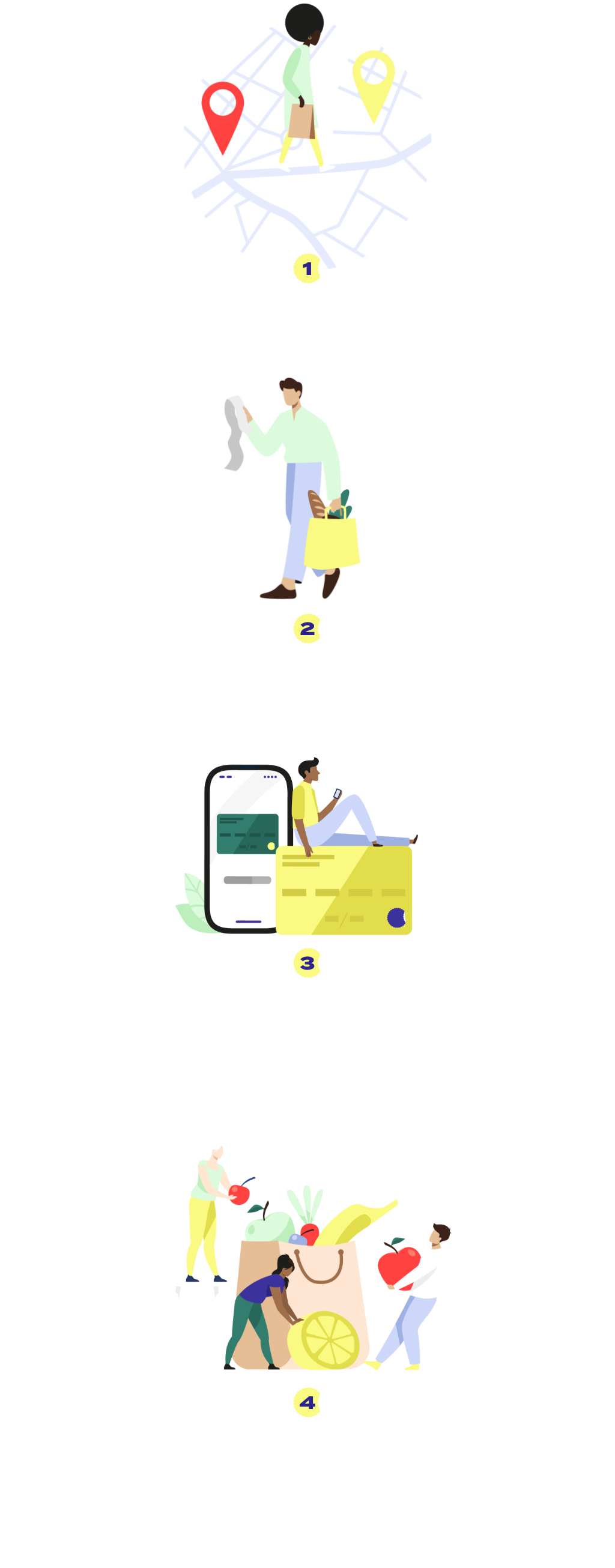A meal card scheme supporting employees, businesses and the economy
We’re campaigning for a change to an existing tax-relief scheme that will unlock up to £220 a month for employees and £6.3 billion for the economy — all while creating 288,000 jobs and boosting turnover for food providers by 18%.

Find out how the scheme supports you
Join our community of supporters to get updates about our campaign for the Real Meal Deal.
How the Real Meal Deal works
The Real Meal Deal is a new self-financed scheme that would use a tax-relief to give employees an allowance for food during the working day. The scheme would be easy to implement, with a simple change to HMRC’s current tax-exemption rules for worker benefits and expenses.



No such thing as a free lunch?
We’ve got a plan to help workers access quality, nutritious food during the working day. But we need your help to make it a reality.
The Government already offers a tax break to help workers eat for less — but only in workplaces with on-site canteens. The current exemption is poorly targeted and has not kept pace with evolving ways of working:
- It unfairly benefits only larger companies who have the space and resources to provide a canteen onsite, leaving out SME and micro-sized businesses who are very unlikely to have onsite canteens.
- It only benefits employees working onsite, leaving out huge swathes of the working population who are remote, hybrid or field-based workers.
The introduction of a meal card in the UK would require a simple update to HMRC’s existing exemptions (Tax and National Insurance) list for employee benefits and expenses, found in the Income Tax (Earnings and Pensions) Act 2003.
Changing this rule would pave the way for a new meal card scheme in the UK — worth up to £220 a month for workers, £6.3 billion for the economy, and an average 18% increase in turnover for participating food providers.
Support the campaign
Food for thought
50 million workers in
35 countries already
enjoy similar schemes.
The value of meal cards in each country varies depending on local costs to employees.
Click on a country to explore similar schemes.
Meal Card Value: €8.00
Introduced: 1988
Est Beneficiaries: 80,000
Impact: Meal cards have provided a €2.6 million annual boost to the state from their impact on reducing black market activity in the food sector alone.
Meal Card Value: €8.00
Introduced: 1965
Est Beneficiaries: 125,000 daily users (50% of the employees in Belgium)
Impact: Each euro spent on meal cards in Belgium generates an average 1.80 € return for the local economy.
Meal Card Value: €10.30
Introduced: 1974
Est Beneficiaries: 300,000 employees
Impact: Created an €8m net benefit for the state.
Meal Card Value: €11.10
Introduced: 1962
Est Beneficiaries: 4,500,000 employees (public/private)
Impact: Supported almost 200,000 jobs in France, and provided more than two billion euros of extra tax revenues. In a survey of medical professionals, 68% of GPs said meal vouchers had helped to improve people’s quality of nutrition.
Meal Card Value: €8.00
Introduced: 1975
Est Beneficiaries: 3,800,000 employees
Impact: More than 190.000 jobs created thanks to the existence of the meal voucher system.The economic contribution of meal cards in Italy is equivalent to almost 1% of the country’s total GDP.
Meal Card Value: €7.63
Introduced: 1979
Est Beneficiaries: 1,800,000 employees
Impact: Contributed more than €1.2bn to the economy. For every 25 beneficiaries of meal vouchers, one paid job is created in the Portuguese economy.
Meal Card Value: €11.00
Introduced: 1994
Est Beneficiaries: 600,000 employees
Impact: 65% of employees surveyed said meal vouchers improve their motivation. The scheme has generated more than €800m for the Spanish Government.
Join our community of supporters to get updates about our campaign for the Real Meal Deal.